Part pseudo-government, part brutal mafia, the Burnees lord over Nairobi’s Kibera slum
When a person dies in the Kibera slums, sometimes a disco matanga is held on the eve of their burial day to help pay for the funeral. What ensues is a big, thumping dance party and fundraiser, often taking place among a loose circle of lawn chairs, fueled by moonshine sloshing in plastic cups. It is barely reverent, but it does alleviate the financial burden of burying the dead.
There are some cases, however, in which matanga is banned because the people who issue permits for the events are the ones who killed him. These deaths leave no space for celebration anyway. Like the teenager who was bound and paraded around the streets naked for stealing a phone, then necklaced with tires and lit up in front of his mother. Or an alleged gang member cut to pieces with machetes in front of the police who watched, and when it was done carried his remains to the city mortuary.
When the Burnees kill, there is no matanga.
Like any other slum mafia, the Burnees are a pseudo-government that emerged where the real one failed. Because of their gruesome execution methods, supporters say that Kibera is far safer than other slums like Satellite or Dandora, where public transit stops running at night and robberies are more frequent.
Kibera residents like Jay-mo, 20, and Odhis, 22, are the targets of Burnee violence: young men who are, or simply look like they could be, up to no good. For people like them, who are at risk of being killed without cause, the near-total impunity of the Burnees is frightening. (Names of all sources who are not Burnees have been changed to protect their identities; few people are willing to speak openly about the darker side of Burnees’ work out of fear of repercussions.)
Jay-mo explains that the Burnees themselves are thieves, freely taxing every facet of life: construction and land, parking and tolls, tariffs for foreign charities, business, and home security, even fees for evangelical parades.
“Yeah, even matters of God,” Odhis nods. “They hold all the power in Kibera.”
The name comes from the fires they set—burning tires, burning buildings, and, notoriously, burning humans
There is a man in the Olympic district of Kibera that most people have only seen from below. Everyone calls him “Tall.”
At the bustling Nubian restaurant, he sends back his food because he changed his mind and wants chicken, not beef. He wags his finger at the waiter who refused to exchange the meal. “For the last time,” he warns, “do as I say.”
Tall doesn’t pay for the meal if he’s not happy, and he never pays when he takes a matatu—a public transit minibus—around Kibera. He folds into the front seat stiffly and calls back, “Si tuko ma-oldies huku Olympic! Aren’t we the oldies around here?” Sometimes he collects money from them.
He must be close to seven feet tall, somewhere in his mid-forties. His dark skin is cracked like cooled lava running down his neck and elbows. His Swahili reels with the bucolic lilt of a Luo accent, his tongue dry and patchy from chewing khat and rinsing it out with gin.
Tall patrols neighborhoods, occasionally patting the fuzzy head of a child walking by or greeting a woman as she bends over her laundry outside. If you ask him what he does, he says he sells music CDs.
Everyone knows Tall is a Burnee. The name comes from the fires they set—burning tires, burning buildings, and, notoriously, burning humans.
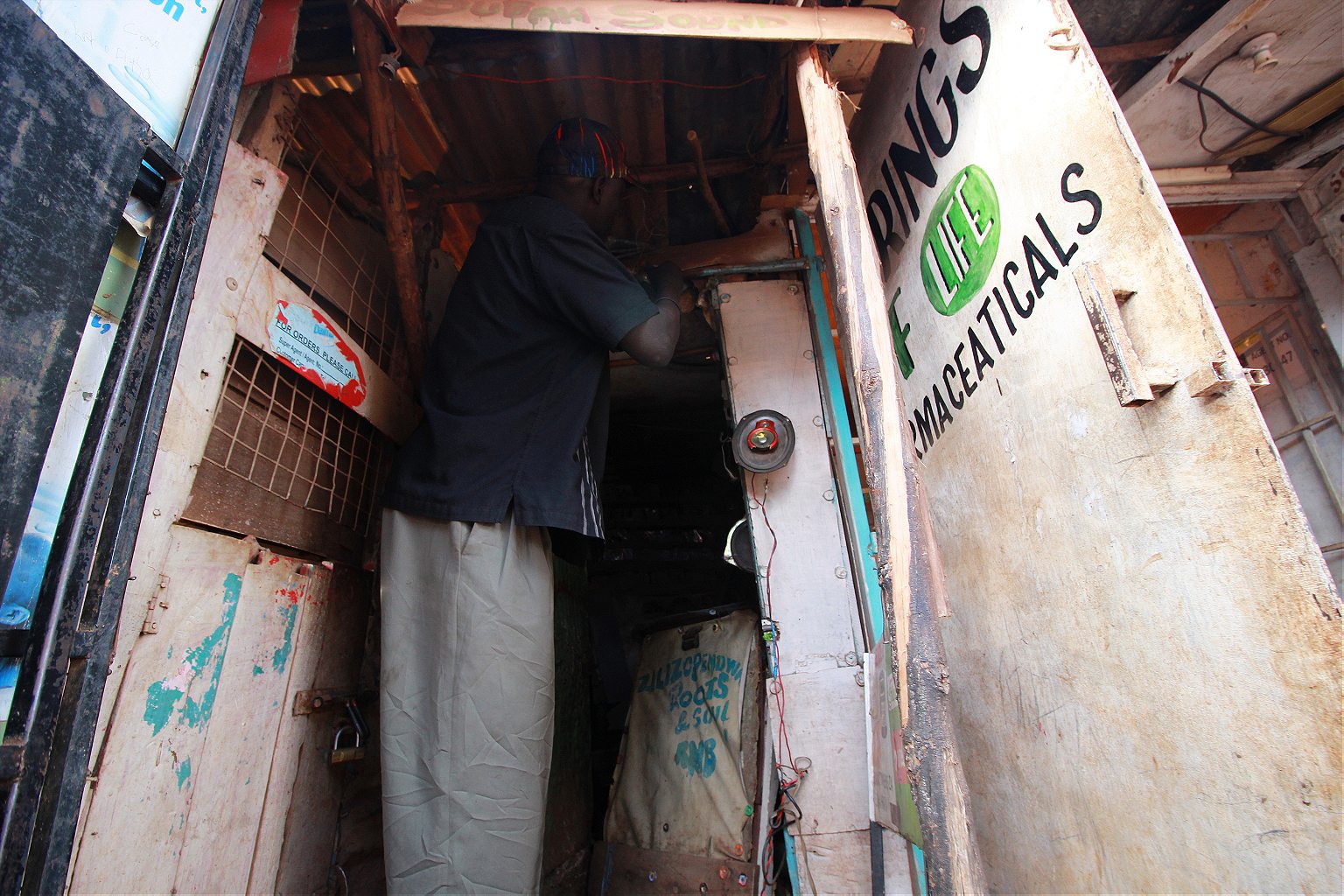
Every so often, the Burnees make national news, as happened in May during protests related to next year’s presidential election. The Coalition for Reforms and Democracy (CORD) led by former Prime Minister Raila Odinga and supported by the Burnees, called for nationwide protests to demand reconstitution of the Independent Electoral Boundaries Commission (IEBC), the regulatory agency responsible for overseeing elections in Kenya.
As CORD supporters rallied throughout the country, Burnees did their part in Kibera by organizing protests, many of which ended violently. Businesses all over Kibera were shuttered before and during the riots to mandate participation or attention to the rallies, and large fires were set around Olympic to halt traffic.
The violence itself cast a long shadow over the prospect of a peaceful presidential election next year. After all, during the notorious post-election violence of 2007-2008, a large part of the killing occurred within Nairobi’s informal settlements, including Kibera. A heavily contested election rent Kenya along its ethnic lines; hundreds were killed in the ensuing bloodshed, and hundreds of thousands were internally displaced. Burnees were on the front lines of the violence in their territories.
Although the following election cycle in 2013 was peaceful, it was due in no small part to critical international attention. This time, the need for Kenya to demonstrate unity to the world has faded. Many fear tribal enmity may reawaken.
In this light, what is even more ominous than the IEBC riots themselves is that, both in times of peace and conflict, a single group of violent men—loyal to one political and tribal leader—still has a very short leash on the biggest slum in Kenya.
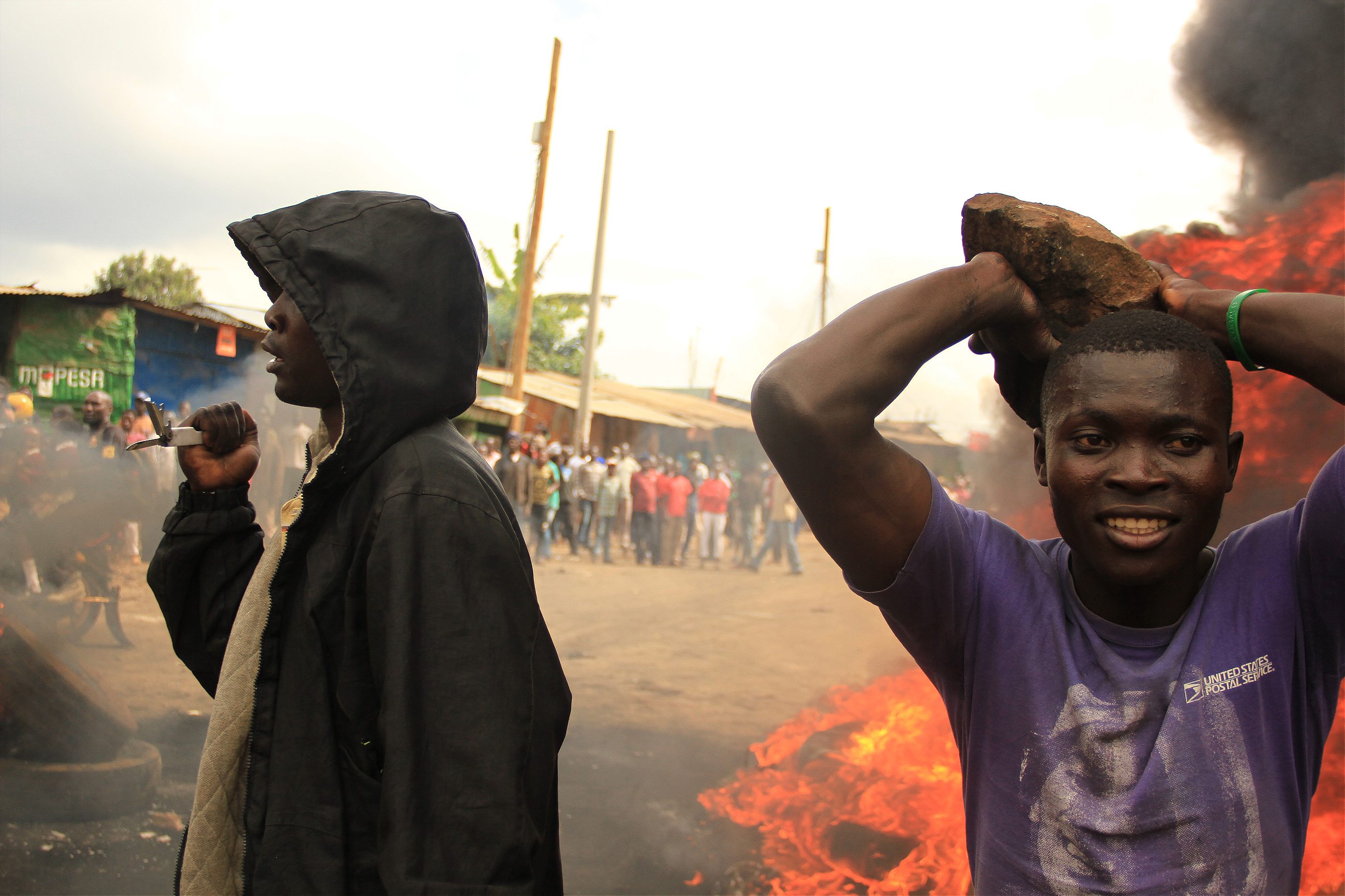
Tall’s real name is Nemia Odhiambo. Like all Burnees, he is of the Luo tribe. He was born near the rice floodplains of Kisumu near Lake Victoria, the youngest of three boys but tallest of all. He came to Nairobi for the first time in high school to visit his brothers on the outskirts of town.
Poorly educated and desperate for work, many Burnees began as young men looking for an escape from a rural dead-end. Like Tall, they followed the promise of employment to Nairobi through a brother or uncle. If that relative was a Burnee, naturally they followed them there too.
Youths in Kibera call newcomers like these wakucome, slang for upcountry migrants who aren’t born-and-raised Nairobians. The palpable rift between the Burnees and youths begins with language itself. Young Nairobians speak Sheng, a shapeshifting street vernacular of mixed English and Swahili, largely inscrutable to older generations. Burnees know Swahili but speak to each other in Dholuo, sometimes very deep provincial dialects.
Some Burnees are fugitive criminals who can never return home so long as they are wanted by the village chief. “Some were murderers upcountry but they still feel the need to shed blood here,” says Odhis. “Damu mbaya inakufuata”—bad blood follows you.
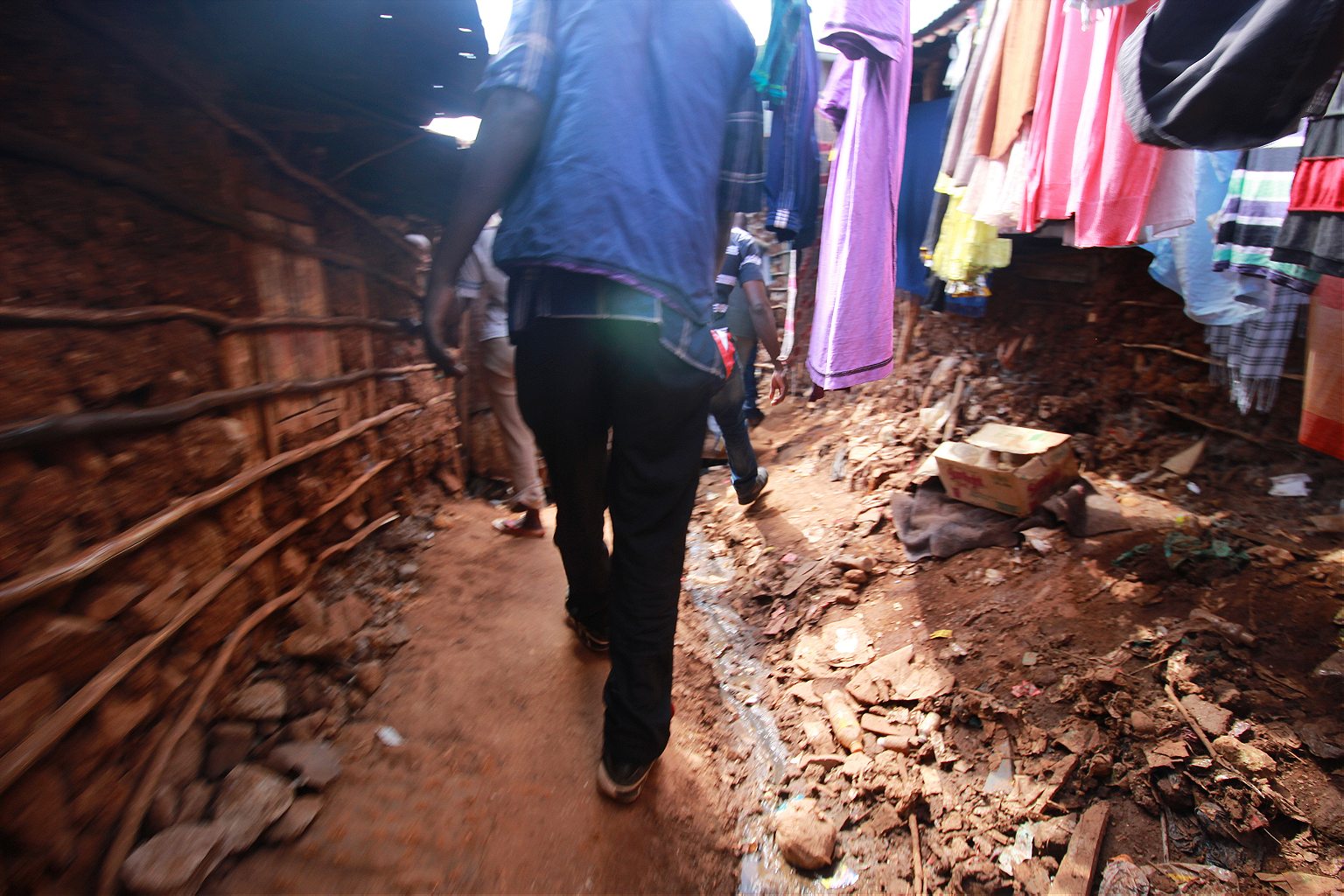
Tall thinks of Kisumu with a gleam of nostalgia—the lungfish, the hot sun, the night-runners. But village life is uncharitable too; the role of every person, animal, and plant has been carved out for a long time, and the consequences for failing one’s role are painfully visible. There is no escape being seen, and perhaps more importantly, no escape from being seen as a failure.
Kibera, on the other hand, is lively and indifferent. At Olympic, Tall spends his days crumpled into his tiny CD store, hiding “right under the surface of the water,” as he puts it, listening to rumba music: Papa Wemba, Franco, the ma-oldies of Zaire. When Tall people-watches from his “office,” he becomes so small and hidden that no one can see him back.
Many migrants, however, Burnees included, reached Nairobi to find no gold pavements, just an oversaturated job market. Men, young and old, compete daily for a limited pool of unskilled tasks and speak of “jobs” as if they are gold coins. Nevertheless, being in Nairobi—being a Burnee in Nairobi—allows even the most destitute of men, through passion and tribal loyalty, to earn a place alongside the nation’s top politicians.
The police don’t just turn a blind eye to Burnees; they actively outsource extrajudicial executions to them
The backbone of Burnees’ sponsorship are big-league political heavyweights, specifically the one they call Baba—Raila Odinga, former prime minister and longtime presidential candidate. Kibera has its own “big man” in ways that other slums do not. Every Sunday afternoon, Burnees gather at Kamukunji Grounds, Kibera’s “town center” where the railway crosses through. Odinga himself regularly attends and speaks at these meetings. When he comes to Kibera, he doesn’t even bring his own bodyguards. Burnees insist on accompanying him as he walks freely in the slums, a feat no other politician could pull off.
Odinga has lost his past two high-profile bids for the presidency, including the 2007 Election that plunged Kenya into civil violence. Next year, he will run once again. It is not difficult to imagine that Burnees and other violent CORD supporters could take matters into their own hands if results are unfavorable to their Baba.
But Burnees are also aligned with the local police, who do not fall along political fault lines. The area chief, himself not Luo but Kikuyu, employs Burnees as guards to cover the station at Sarang’ombe in Kibera. The police don’t just turn a blind eye to Burnees; they actively outsource the most gruesome extrajudicial executions to them.
“They claim to be security,” says Victor, a youth from Kibera’s Soweto district. “But what kind of work is that? They have killed many innocents.” Years ago, Burnees came for his brother, a gang member, and began beating him to death. Victor frantically called the police for help and listened, horrified, as the chief replied that he was the one who sent them.
He watched his brother die.
There was a madman who picked up milk delivered to a storefront; the Burnees were called, and he was hacked to death on the spot. A thief was accused of stealing at night; they pulled out his dreads until his head was just blood. A student tracked down by a phone he allegedly stole was burned right there in Raila Estate. When youths tell these stories about Burnees, they don’t need to mention if the victim died at the end.
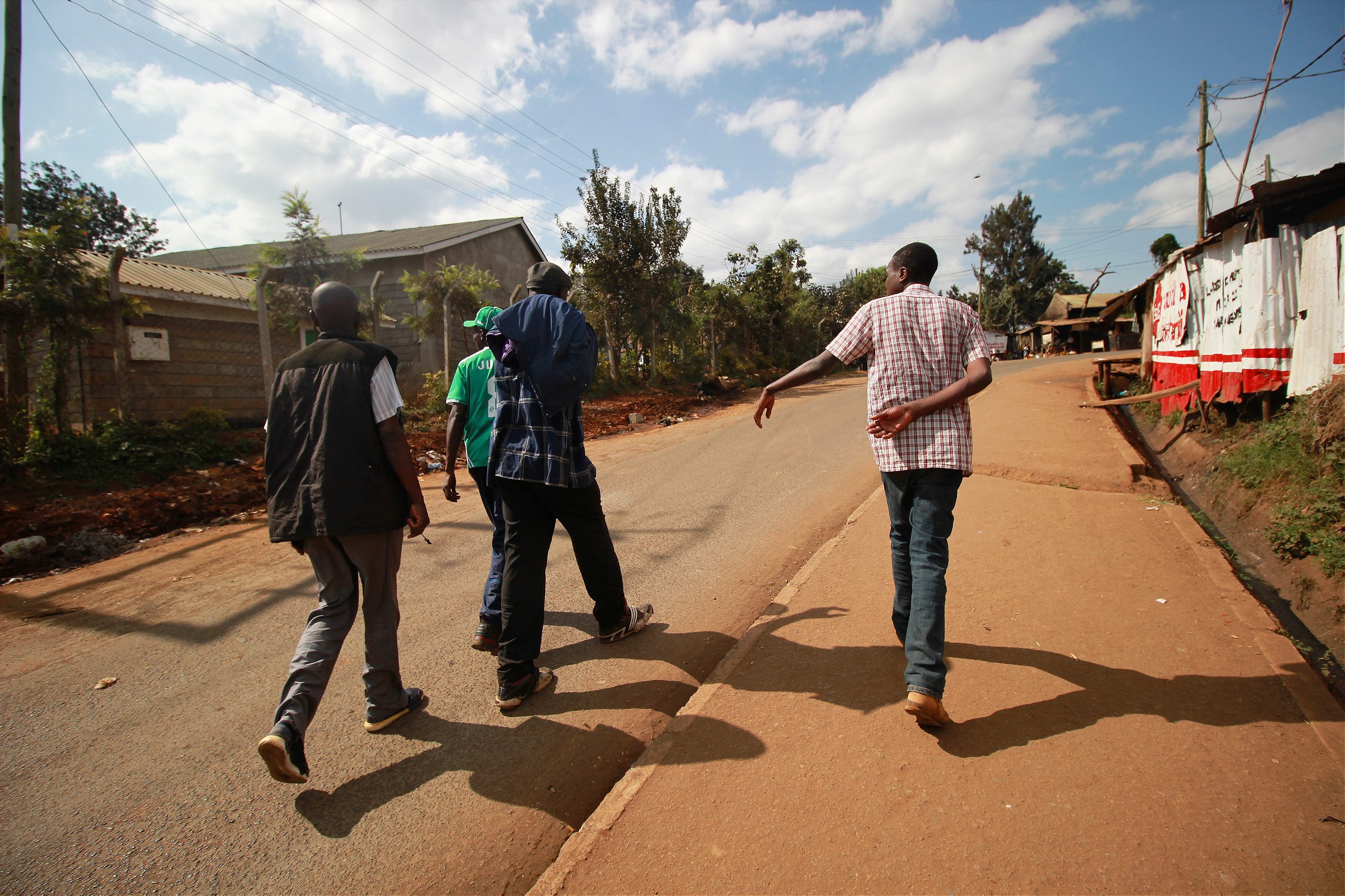
It’s 5 p.m. at one of the Burnee watering holes in Olympic, a covert bar tucked behind corrugated sheet metal. It’s happy hour. Every few minutes a hand reaches through the hole in the door to unlock the hatch and flood the dark, dank room with sunlight.
The men are drinking Senator, a cheap beer nicknamed “Obama” (the most famous Senator of Luo descent). It tastes like bad malt liquor and is served lukewarm from a hand-pumped keg. One glass goes for 30 Ksh ($0.30).
Tall pulls from his vest pocket a small vial of brown Maasai snuff, and everyone clamors for a pinch. “Eat medicine, eat medicine,” Tall shouts, but when one Burnee gets picky, he hisses, “Go get your own then. Medicine is money, and money is medicine.” A chorus of sneezes ensues.
As they watch a documentary about crocodiles on a small television, it’s easy to imagine that these are just normal men drinking away work troubles. One man throws his hands up when the croc drags down a wildebeest. Another man is slumped, asleep.
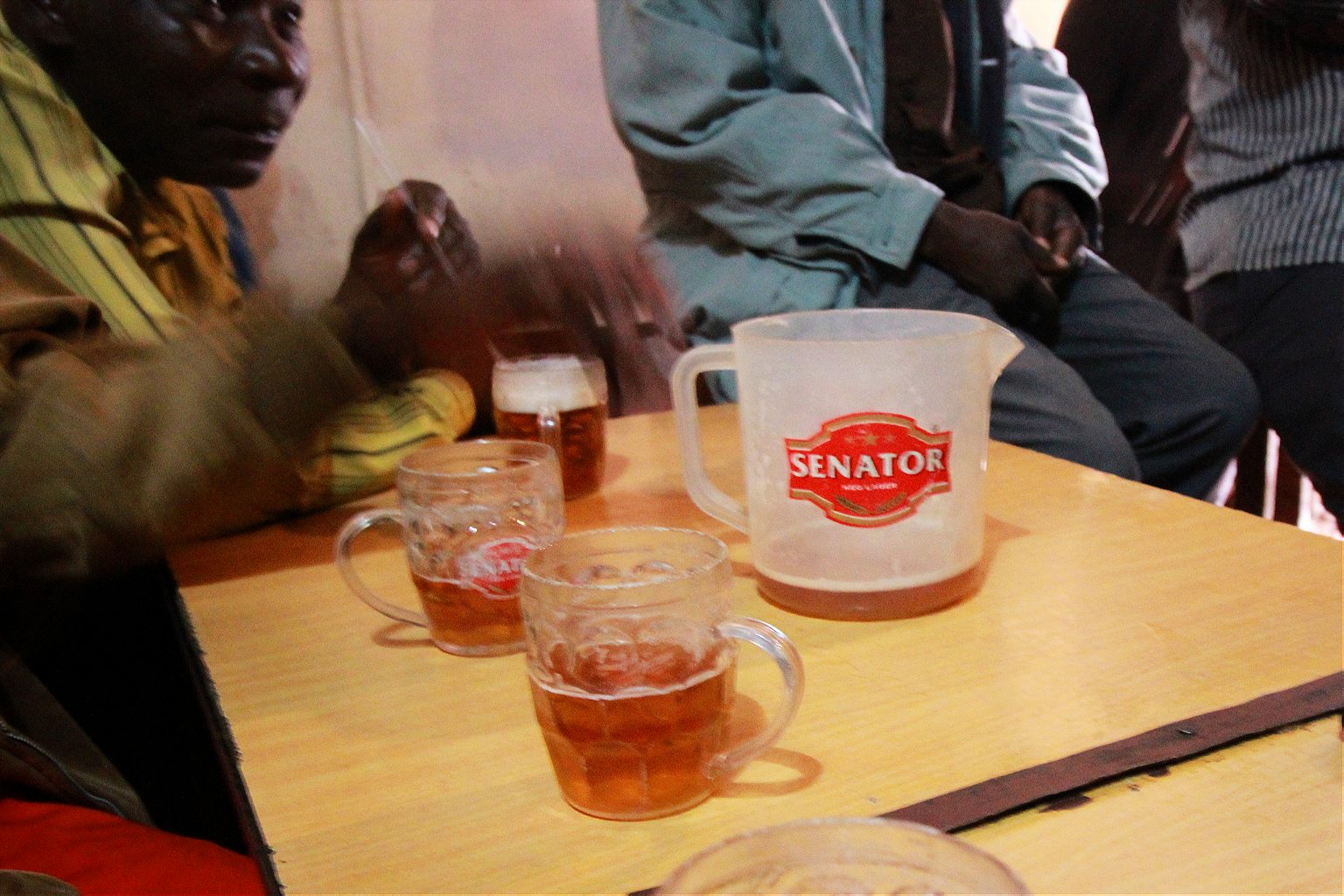
But when a drunk man barges in, driveling incendiary statements, the Burnees’ annoyance takes a dark turn. He is ejected from the bar and the door locked from the inside. Bar talk becomes work talk:
“Someone should go and kill that kid right now.”
“Not worth getting landed at Kilimani Police for something so stupid.”
“Just take him like this”—a man gestures like he’s holding a chicken’s neck—
“and break like that…”
“—and kick open his balls,” Tall adds.
“He’s lucky we know him; otherwise, we would have killed him.
“Wan ji maricho. We are bad people. We could kill him.”
It’s telling that they call their bars their “headquarters.” When they are not earning or extorting money, they are spending it to stay intoxicated. Possibly the greatest paradox of the Burnee is how one simultaneously wields so much power, enjoys such legal impunity, yet remains so poor. They solicit tolls from lorries but sometimes drink water for dinner. Tall doesn’t even own a cell phone.
But in the protracted timescale of idlers where frustration begets violence as much as it does resignation—especially the unusual, cruel violence of Burnees—“taking medicine” makes sense. For a Burnee, perhaps forgetting is more valuable than trying.
“They’re cursed,” says Deno, a motorcycle taxi driver based near Olympic. “When you’ve done the things they’ve done and seen what they’ve seen, you can never find happiness. They drink all their money away.” His teeth chatter inadvertently when he says this.
“They’ll do anything for money.” He adds that all it takes to hire a murder in Kibera is to pay however many Burnees you need 500 Ksh each ($5).
Some believe that Burnees are cursed
Down the street from the bar is another Burnee “headquarters.” It’s only 11 a.m., but James Odhiambo and Walter Omondi have already had a few Obamas, same as the day before. “They are opening their minds,” jokes the bartender. But really they’re there because they weren’t able to find jobs that morning. On the wall, someone has written in marker: Even the rich cry, and There is no guess work in life.
When Walter and James talk about thieves and criminals, how they handle them with machetes, there is a moment when they lapse out of vindictiveness. In a fleeting but clear thought, James links all the moving parts of Kibera together—the youth, the criminals, the women, the children, the vigilantes—as the poor.
But Jay-mo says that, even if you gave every Burnee a job, they would simply work during the day and kill at night. Odhis says new ones would flood in. As long as there is Kibera there will be Burnees. They cannot be killed.
However, while there are retired Burnees, there aren’t very many old ones. Some youths believe that Burnees are indeed cursed. It’s said hushedly that many die early of HIV/AIDS from sleeping around often, or that their babies come out deformed, lame or with large heads.
“How do they die?” Odhis asks coldly. “Maybe now only God can kill them. May God kill them all.”